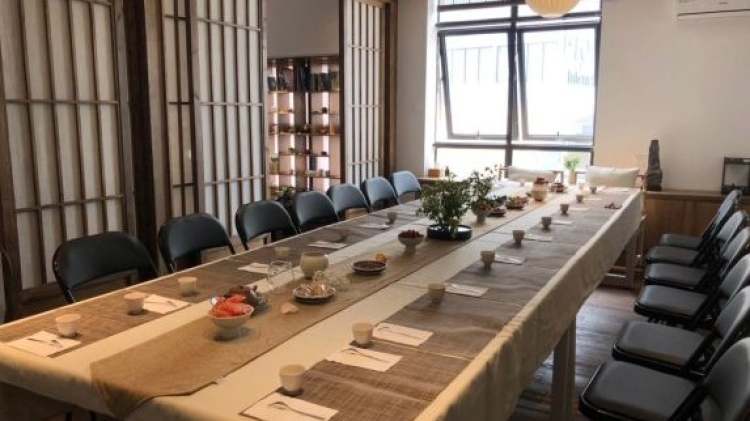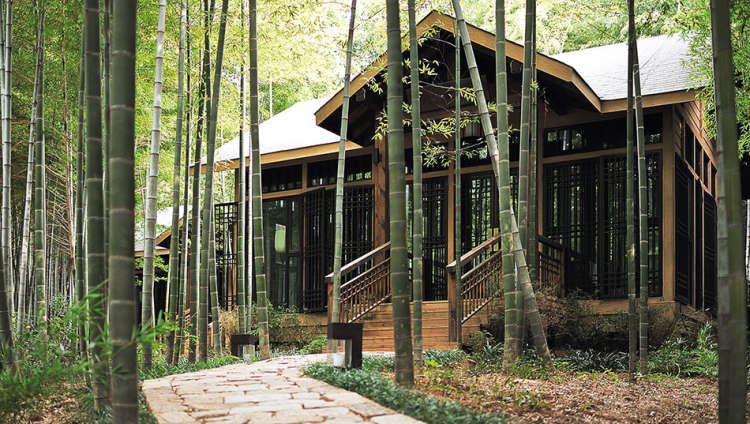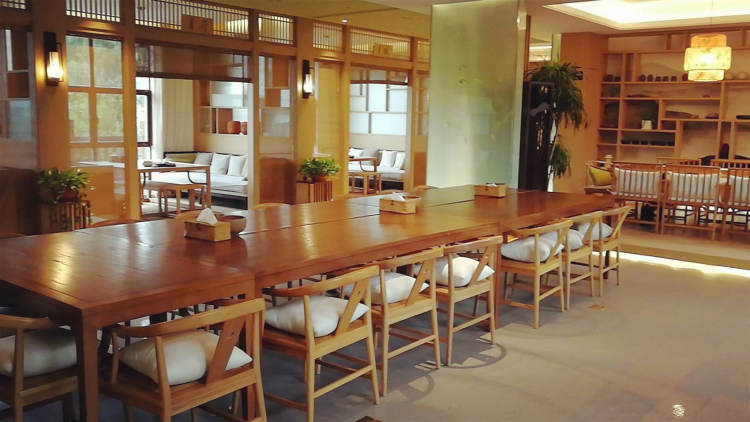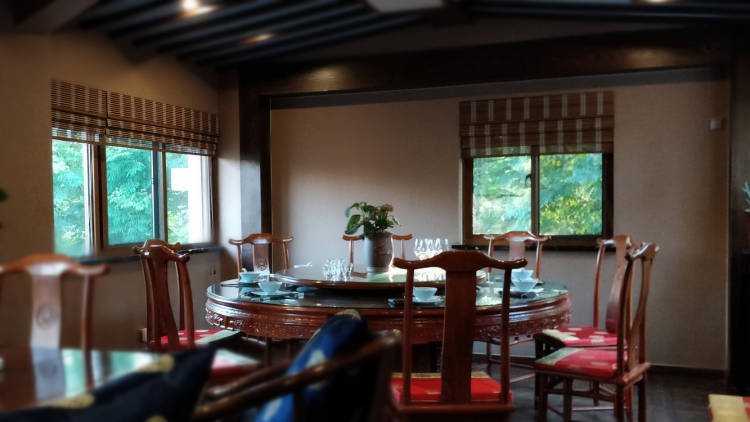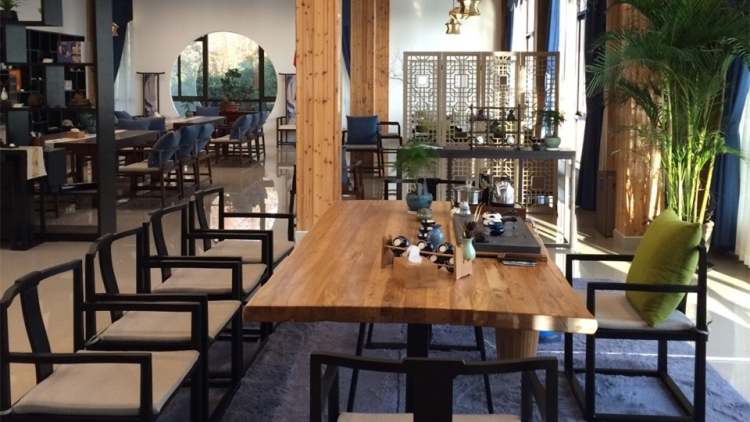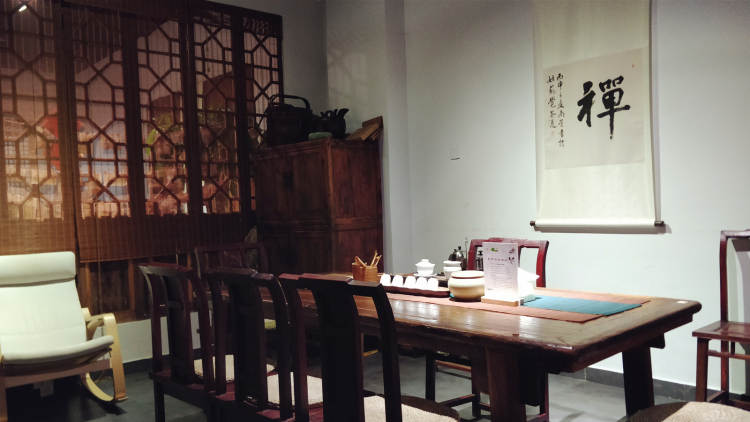Newly opened, the Hidden Tea House is located in the commercial block of the industrial park, and the quiet teahouse contrasts with the noisy atmosphere of the surrounding commercial street. There is a slight sense of "hidden in the city".
The teahouse is located on the second floor, the store area is not large, and the delicate and small Zen-style design gives people a better first impression. There is a living room, a Chinese private room, a Japanese private room, and a meeting room. Tea sets and tea leaves are displayed in the aisle, which are exquisitely shaped, and tea customers can also buy them if they are interested. The teahouse supports the storage of tea purchased in the store, and tea customers need to pay an additional 128 yuan for the use of the in-store private room.
When tea guests enter the teahouse, they will meet the proprietress who is waiting for the living room to make tea. She herself is a veteran tea culture lover and has a wealth of tea for all kinds. For tea customers who are keen on tea culture, the proprietress is very happy to communicate with them, and also share their own private tea from time to time. The more famous one is the 501 batch of 7542 white cloth strips in 2005. The tea is a Pu'er raw tea, which is the first batch of Red Dayi 7542 after the restructuring of Menghai Tea Factory (the first place in the recommended list of Pu'er tea in the trusted choice). The quality of this batch of tea is high enough to be as famous as Taetea 88 Green, Purple Taetea, 97 Water Blue Seal, and Simplified Cloud. Because there is a strip of white cloth tied to the hemp rope of the tea bamboo basket, 7452 is called a white cloth strip by tea guests. Its tea fragrance is rich and charming, the soup quality is delicate and soft, and the sweetness of raw jin is obvious. For Pu'er tea lovers, the tea served by the proprietress is the reason why they become repeat customers.
White cloth strips are hard to come by, but 2003 Pu'er raw or ripe tea is available normally. It is recommended that tea customers choose the former, although its quality is slightly lower than that of white cloth strips, it is also considered a good tea. Since all the shops are private seats, tea houses usually provide tea sets corresponding to the type of tea. For example, Pu'er tea is best brewed in a purple clay pot. In 2003, Pu'er raw tea was more charming under the support of the purple clay pot, the soup color was bright and red, the tea fragrance was elegant, and the sense of expression was strong, which was a little less sweet than the white cloth strip, and the fragrance was a little worse. Ripe Pu'er tea has been fermented, and it has a good flavor after two or three years, and a category like the one that has been left for more than ten years in the store is incredible. It should be reminded that the tea master accompanies the tea maker to make tea, and there is a 20% service fee.
In addition to Pu'er tea, the Hidden Tea House also offers a variety of teas such as aged Dahongpao (Zhengyan), Golden Bud, Song Chong (Single Fir), and Biluochun before the Ming Dynasty to meet the diverse needs of diners. The tea in the store is Nongfu Spring, which adds more charm to the performance of the tea soup. If the tea guest chooses high-end tea leaves of more than 500 yuan, the tea house will light Nha Trang agarwood or Qi Nan agarwood in the box, and the physical and mental experience will be taken to a higher level.
The two private rooms, one for modern Chinese Zen style design and the other for Japanese design, are recommended to be reserved in advance and used by selecting a set menu. The box is limited to 5 people, 3 hours long, each more than one person will be charged 100 yuan for additional seats, and more than 3 hours will be charged at 100 yuan/hour. The conference room is actually a large tea room box, and the specific cost needs to be negotiated in detail between the tea guest and the tea house.



